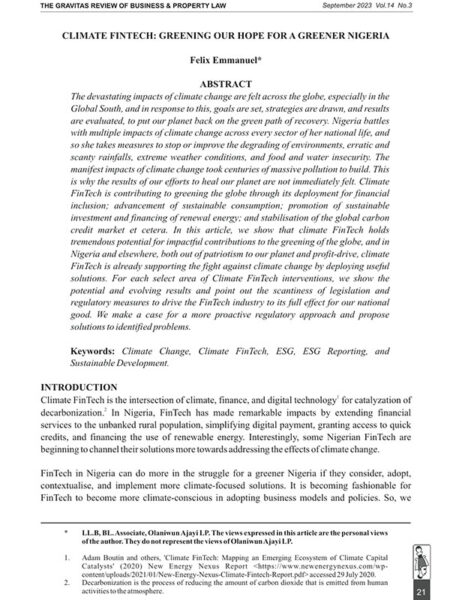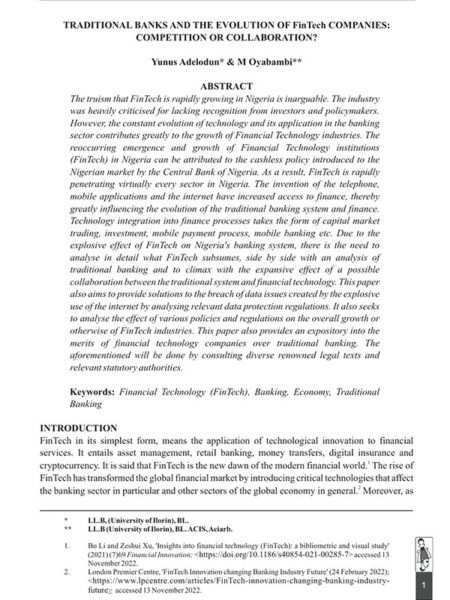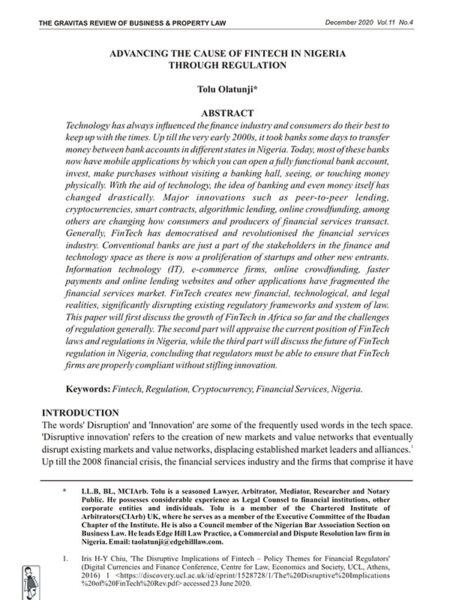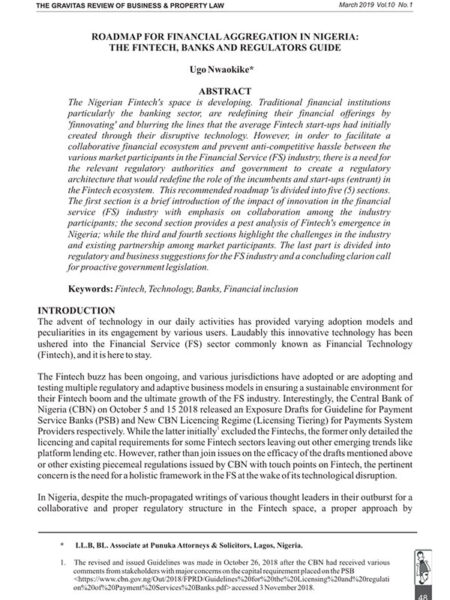-

Climate Fintech: Greening Our Hope For A Greener Nigeria
0₦2,500.00Felix Emmanuel, in his article Climate Fintech: Greening Our Hope For A Greener Nigeria, unravels the relationship between the activities of fintechs and climate change. It shows that climate FinTech holds tremendous potentials of impactful contributions to the greening of the globe. It underscores the how climate FinTech are already supporting the fight against climate change by deploying useful solutions. For select areas of Climate FinTech interventions, the paper demonstrates the potentials and evolving results and point out the scantiness of legislation and regulatory measures to drive the FinTech industry to its full effect for our national good. Emmanuel makes a case for a more proactive regulatory approach and propose solutions identified problems.
-

Traditional Banks and the Evolution of Fintech Companies: Competition or Collaboration?
0₦2,500.00Yunus Adelodun and M. Oyabambi in their article, Traditional Banks and the Evolution of Fintech Companies: Competition or Collaboration? examine the growing recognition of Fintechs, their technology and its application in the banking sector. They analyze in details what Fintech subsumes, side by side an analysis of traditional banking and climaxed with the expansive effect of a possible collaboration between the traditional system and financial technology. They provide solutions to the breach of data issues created by the explosive use of the internet, by providing an analysis of relevant data protection regulations. They also provide an expository into the merits of financial technology companies over traditional banking.
-

Advancing the Cause of Fintech in Nigeria through Regulation
0₦2,500.00Tolu Olatunji of the Edge Hill Law Practice in his article, Advancing the Cause of Fintech in Nigeria through Regulation, comprehensively considers the regulatory framework for Fintech in Nigeria. He appraises the growth of Fintech in Nigeria and Africa, regulatory and industry sandboxes and the challenges of regulation. He concludes that regulators must ensure compliance with regulations without stifling innovation.
-

Roadmap for Financial Aggregation in Nigeria: The Fintech, Banks and Regulators Guide
0₦2,500.00Ugo Nwaokike, Associate<, Punuka Attorneys and Solicitors in his article, Roadmap for Financial Aggregation in Nigeria: The Fintech, Banks and Regulators Guide, considers that traditional financial institutions are redefining their offerings to overcome the initial head start fintech start-ups had with their disruptive technology. However, to facilitate a collaborative financial ecosystem and prevent anti-competitive hassle between the various market participants in the financial services industry, there is a need for a regulatory architecture that would redefine the role of the incumbents and entrants in the fintech ecosystem. He examines the challenges in the fintech industry and existing partnership among participants while recommending legislative, regulatory and business measures to achieve a collaborative and cohesive industry.
The Gravitas Review of Business & Property Law



